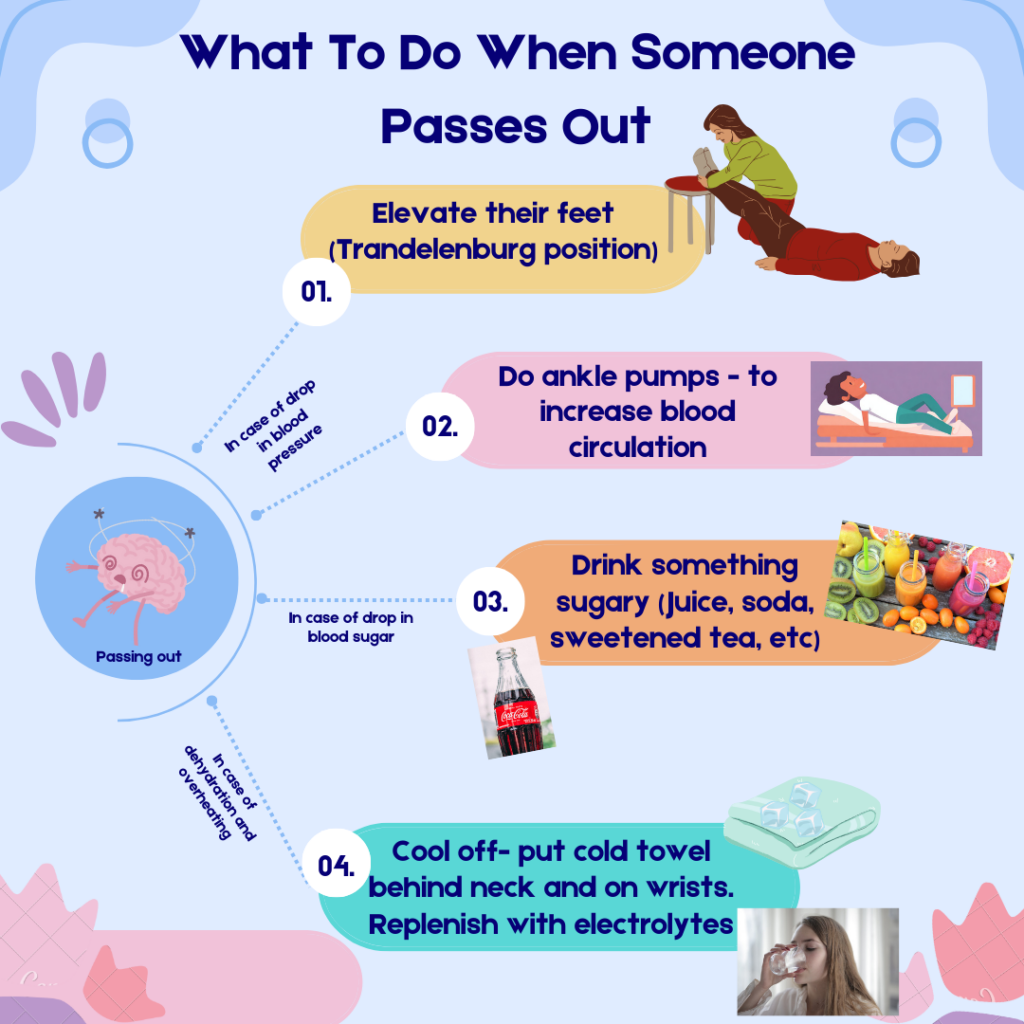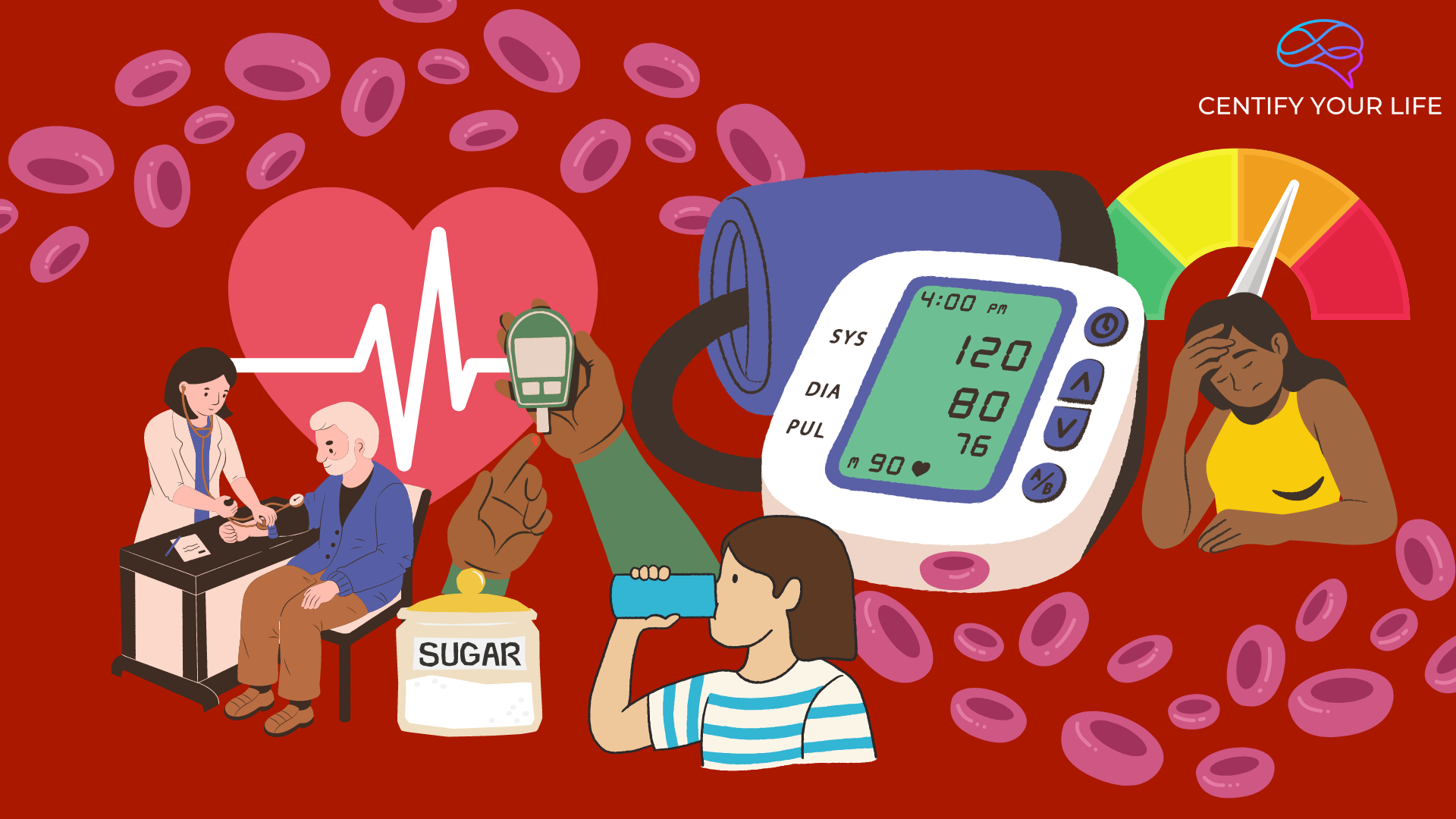Decoding the "Why" Behind Passing Out
In the intricate dance of our daily lives, there are moments when the body surprises us with an unexpected pause – the phenomenon of passing out. It’s a dramatic interlude where the symphony of bodily functions briefly falters, leaving us wondering about the reasons behind this temporary blackout. From the delicate balance of blood pressure to the crucial role of glucose as the brain’s preferred fuel, join me on a journey to unravel the mysteries of why our remarkable bodies occasionally decide to hit the pause button, reminding us that even the most well-oiled machines have their vulnerable moments.
Fainting, or syncope, can be caused by various factors. Common reasons include low blood sugar, dehydration, sudden drops in blood pressure, and inadequate blood flow to the brain. Emotional stress, anxiety, and standing up too quickly can also trigger fainting. It’s essential to consider underlying medical conditions like heart problems, anemia, or neurological issues as well. If someone frequently faints, seeking medical advice is crucial to identify and address the underlying cause. Luckily for most, fainting is a one-off episode that occurs from a sudden change in our body! Lets dive into the specifics about syncope. [1]
*NOTE*: Throughout this article I will use the terms “passing out,” “fainting,” and “syncope” interchangeably, and they all mean the same thing! Syncope is typically used more often in medical terminology, while passing out and fainting are used in laymen’s terms.
First Line of Action

Blood Pressure's Role
A drop in blood pressure, known as hypotension, can lead to fainting due to insufficient blood flow to the brain. Here are some explanations why maintaining blood pressure is so essential.
1. Orthostatic Hypotension → One *very* common cause of a sudden drop in blood pressure leading to fainting is orthostatic hypotension. This occurs when a person stands up, or changes position too quickly, causing a temporary decrease in blood flow to the brain. The body usually compensates for this change by constricting blood vessels and increasing heart rate, but if these mechanisms fail, fainting can occur. [2]
- This is very common in elderly populations, as well as people who have been in bed for multiple days!
- Suddenly standing after laying in bed for >2 days causes blood to rush to the legs and away from the brain. This sudden rush of blood and nutrients away from the brain causes syncope!
- This is why it’s so important for people to continue walking when ill or during hospitalizations. Decreased tolerance to standing and walking happens FAST!
- As we age, our blood vessels become less efficient at managing these changes in blood pressure during repositioning, which is why a child, teenager, or young adult may not be effected by prolonged bed rest, but a middle aged to elderly individual might see quite a drastic change in just a few days of bed rest. [2]
2. Insufficient Oxygen Supply → Lower blood pressure means less force driving blood through the blood vessels. There are many causes of low blood pressure but just to name a few it can be caused by dehydration, heart conditions, endocrine issues, infections like sepsis, blood loss, nutritional deficiencies, medications, and lack of physical activity.
3. Dehydration and Blood Volume → Insufficient blood volume due to dehydration or other factors can contribute to low blood pressure. Inadequate fluid levels reduce the amount of blood circulating in the body, further compromising blood flow to the brain.
Management of low blood pressure involves addressing underlying causes, such as such as some spoken about above. Lifestyle adjustments, like staying hydrated, rising slowly from a sitting or lying position, and wearing compression stockings, can help prevent episodes of fainting due to low blood pressure. If fainting episodes persist, consulting with a healthcare professional is advisable for a thorough evaluation. [3]
Dehydration's Role
Dehydration can lead to fainting due to its impact on blood volume, which subsequently affects blood pressure and the delivery of oxygen and nutrients to the brain.
- Blood Volume Reduction → Blood is composed of both liquid (plasma) and cells (red and white blood cells). When dehydration occurs, there is less plasma, leading to a decrease in blood volume – which causes low blood pressure and decrease nutrient delivery.
- Decreased Blood Pressure → With a lower blood volume, there is a decrease in blood, which means that less blood is reaching vital organs, including the brain.
- Impaired Oxygen Delivery → Blood delivers oxygen to the brain, and when blood pressure and blood volume drop due to dehydration, the brain may not receive enough oxygen.
- Electrolyte Imbalance → Dehydration often involves a loss of electrolytes such as sodium and potassium, which play a crucial role in maintaining proper nerve and muscle function, including the heart. Electrolyte imbalances can disrupt the normal electrical activity of the heart, leading to irregular heartbeats and further contributing to fainting.
Preventing dehydration through adequate fluid intake is essential in maintaining overall health and preventing fainting episodes. Rehydration with electrolyte solutions may be necessary in some cases, especially if electrolyte imbalances have occurred. [2]
Blood Sugar's Role
Low blood sugar, or hypoglycemia, can lead to loss of consciousness due to its impact on the brain’s energy supply. Glucose is the primary fuel for the brain, and when blood sugar levels drop too low, the brain doesn’t receive an adequate supply of this essential fuel. This cause of fainting is less common and happens mainly among the diabetic population.
- Hypoglycemia Effects → Glucose is crucial for the brain’s normal functioning. It’s the primary energy source that neurons rely on to carry out their functions. When blood sugar levels fall below the normal range, the brain doesn’t get enough glucose to meet its energy demands. This can disrupt normal brain function and lead to symptoms like dizziness, confusion, and in severe cases, loss of consciousness or fainting. [4]
- Neurotransmitter Release → In response to low blood sugar, the body releases adrenaline (epinephrine) and other stress hormones. While these hormones are meant to raise blood sugar levels, they can also cause symptoms like palpitations, sweating, and shakiness. [5]
Managing blood sugar levels through a balanced diet, regular meals, and, if needed, medication for those with diabetes, is essential in preventing hypoglycemia-related fainting episodes. If you experience recurrent fainting due to low blood sugar, it’s crucial to consult with a healthcare professional for proper evaluation and management. I encourage you to look closely at your diet and life style if 1 or more of these are the cause of frequent fainting, and to work with your physician to find a solution!
Less Common Causes of Fainting
Apart from low blood pressure, dehydration, and low blood sugar, several other factors can lead to a lack of blood flow to the brain, resulting in fainting or syncope. Here are some additional causes:
- Heart Conditions → Various heart problems, including arrhythmias (irregular heartbeats), heart valve disorders, and structural heart defects, can affect blood flow. If the heart is unable to pump blood effectively, it may lead to fainting.
- Neurological Issues → Conditions that affect the nervous system, such as epilepsy, can cause temporary disruptions in brain function, leading to fainting episodes.
- Postural Orthostatic Tachycardia Syndrome (POTS)→ This condition is characterized by an abnormal increase in heart rate upon standing, accompanied by symptoms like dizziness and fainting. It often affects young individuals.
- Hyperventilation → Rapid and shallow breathing can lead to a decrease in carbon dioxide levels in the blood, causing blood vessels to constrict and reducing blood flow to the brain.
- Anemia→ A deficiency in red blood cells or hemoglobin reduces the blood’s oxygen-carrying capacity, potentially leading to fainting.
- Medication Side Effects → Some medications, especially those that affect blood pressure or heart function, may contribute to fainting as a side effect.
- Hypervagotonia → An excessive stimulation of the vagus nerve can lead to fainting. This can occur in response to various triggers, including swallowing, coughing, or bearing down during bowel movements.
It’s essential to consult with a healthcare professional if you experience recurrent fainting episodes, as it could be a sign of an underlying medical condition. A thorough evaluation can help identify the specific cause and guide appropriate treatment! [2]
Fainting is Scary! Here are some reasons to seek medical advice after fainting.
If you experience fainting and it’s a one-time occurrence with an obvious trigger like dehydration or low blood sugar, it may not be cause for immediate concern. However, it may be appropriate to seek medical attention if:
- Fainting happens repeatedly.
- You have no clear trigger for the fainting episode.
- Fainting is associated with chest pain, shortness of breath, or palpitations.
- The episode is accompanied by severe headache, confusion, or neurological symptoms.
- Fainting occurs during exercise.
- You sustain an injury during the fainting episode, like hitting your head. [1]
- Fainting. Cleveland Clinic. Accessed January 23, 2024. https://my.clevelandclinic.org/health/symptoms/21699-fainting.
- Preventing simple faints. Heart Rhythm Clinic. August 8, 2017. Accessed January 26, 2024. https://www.heartrhythmclinic.com.au/heart-health/preventing-simple-faints/?doing_wp_cron=1706587660.8135979175567626953125#:~:text=Vomiting%20and%20diarrhea%20can%20also,vital%20organs%20including%20your%20brain.
- Goswami N, Blaber AP, Hinghofer-Szalkay H, Montani JP. Orthostatic Intolerance in Older Persons: Etiology and Countermeasures. Front Physiol. 2017;8:803. Published 2017 Nov 9. doi:10.3389/fphys.2017.00803
- Wester M, Bergmann T, Müller-Schilling M, Maier LS, Sossalla ST. Transient hypoglycemia as a rare cause of recurring transient loss of consciousness: a case report. J Med Case Rep. 2021;15(1):261. Published 2021 May 6. doi:10.1186/s13256-021-02844
- A. Lagi, “Syncope and Hypoglycemia,” International Journal of Clinical Medicine, Vol. 2 No. 2, 2011, pp. 129-132. doi: 10.4236/ijcm.2011.22023.

